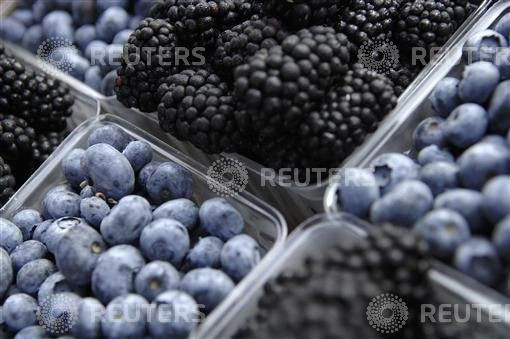Antioxidants Tied To Older Men's Sperm Quality

(Reuters Health) - Middle-aged and older men who get enough antioxidants in their diets may have better-quality sperm than men who are lacking in the nutrients, a new study suggests.
Researchers found that among men age 45 or older, those who got the most vitamins C and E, folate and zinc tended to have fewer DNA-strand breaks in their sperm.
That's a measure of the genetic quality of sperm, which is known to decline as a man ages.
The findings, reported in the journal Fertility and Sterility, do not prove that antioxidants directly improve sperm quality - or boost the chances of a healthy pregnancy.
"People who eat well are probably doing a bunch of other healthy things, too," noted senior researcher Andrew J. Wyrobek, of the Lawrence Berkeley National Laboratory in California.
But it wasn't overall nutrition that was linked to older men's sperm quality. "It was the antioxidants specifically," he said in an interview.
Antioxidants help mop up reactive oxygen species, byproducts of cellular metabolism, which can cause genetic damage.
That does not mean men should start scarfing supplements for the sake of their sperm. Even if the nutrients are the reason, the men in this study with the best-quality sperm just got the recommended amounts of antioxidants, through food or pills.
"It wasn't about getting extreme amounts," Wyrobek said.
The study included 80 healthy, non-smoking men between the ages of 22 and 80. They filled out a questionnaire on diet and supplement use, and gave sperm samples.
Among men ages 45 and up, those who got the most vitamin C had 20 percent less DNA damage than those who took in less of the vitamin. Men in that high-intake group typically got about 700 milligrams of vitamin C a day; the recommended amount for men is 90 mg, but an intake as high as 2,000 mg is considered safe.
The findings were similar when the researchers looked at vitamin E, zinc and folate, though the differences in sperm DNA damage were smaller. Again, older men in the high-intake groups typically got more of each nutrient than is recommended, but were still well within the safe ranges.
The recommended daily intake for vitamin E is 15 mg (and no more than 1,000 mg); for zinc, it's 11 mg (and no more than 40 mg); and for folate, it's 400 mg (no more than 1,000 mg).
The researchers found no link between antioxidant intake and sperm quality in younger men.
Wyrobek speculated that in younger men, the body may be under less "oxidative stress," or it may be more efficient at neutralizing that stress.
All of the men in this study were free of fertility problems. And Wyrobek said the findings should not be taken to suggest that downing antioxidants could cure infertility.
Male infertility could have any number of causes, he noted. So couples having trouble conceiving should not pin their hopes on vitamins.
Still, Wyrobek said the findings support what's recommended for overall health: getting a nutritious, antioxidant-rich diet.
"This suggests that if you're an older man who's planning on having children in the future, you could think of your diet as part of that overall plan," Wyrobek said.
Foods rich in vitamin C include citrus fruits, red and green peppers and tomatoes. Vitamin E is found in certain vegetable oils, nuts like almonds and green vegetables like spinach and broccoli, while zinc sources include seafood, red meat, beans, nuts and dairy.
Folate is found in leafy greens, beans and grains fortified with folic acid.
With more and more men becoming fathers past the age of 40, it will be important to keep studying the factors linked to sperm quality in middle-aged and older men, according to Wyrobek's team.
The question of whether men's antioxidant intake ultimately affects their ability to have children, or the future health of their children, needs more study, the researchers say.
SOURCE: bit.ly/RRl0RB Fertility and Sterility, online August 28, 2012.
© Copyright Thomson Reuters 2024. All rights reserved.





















